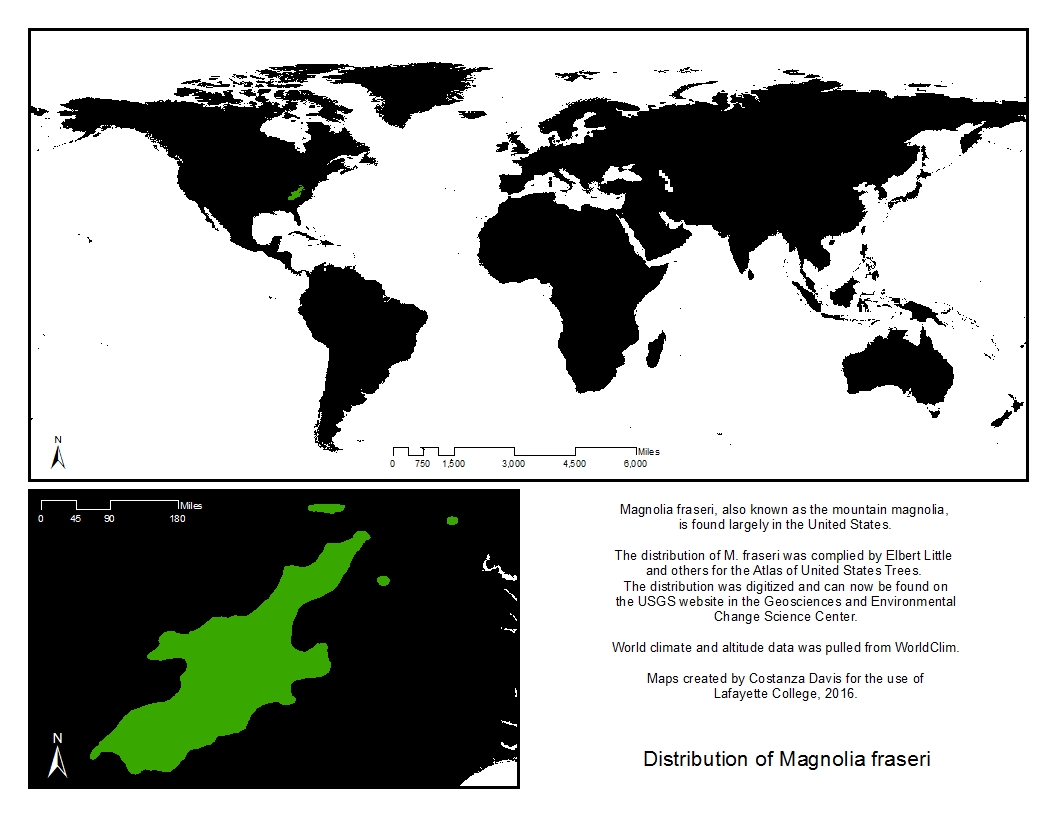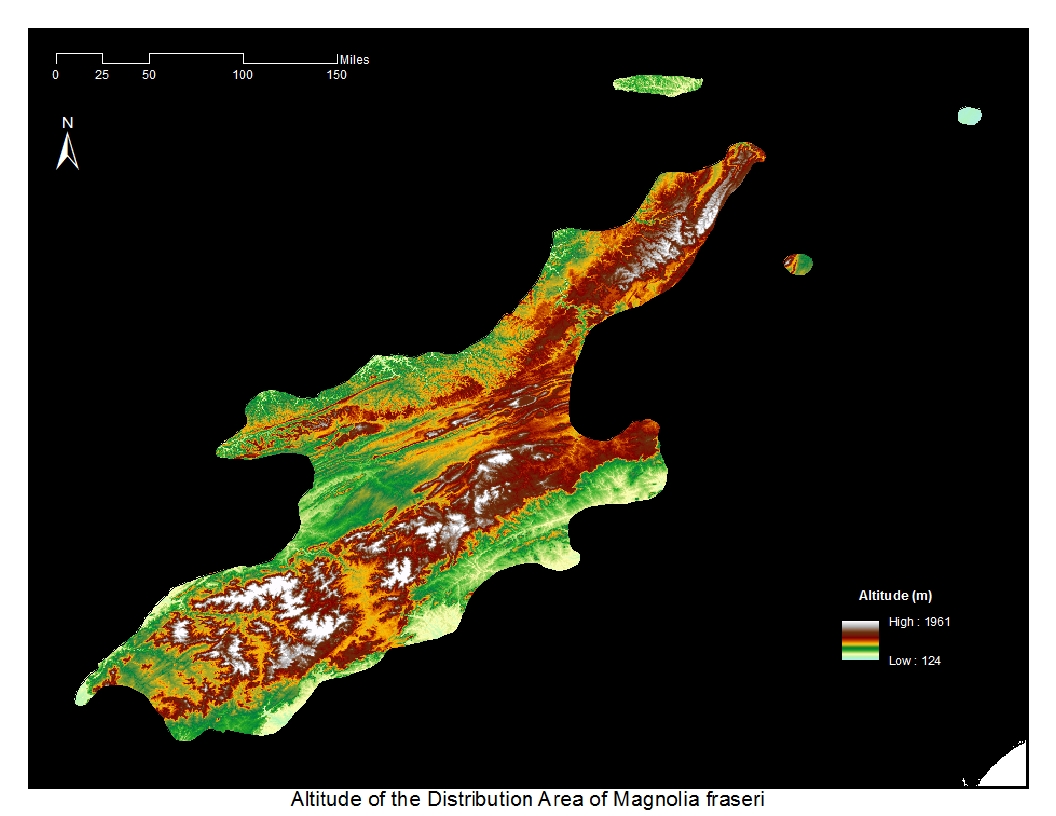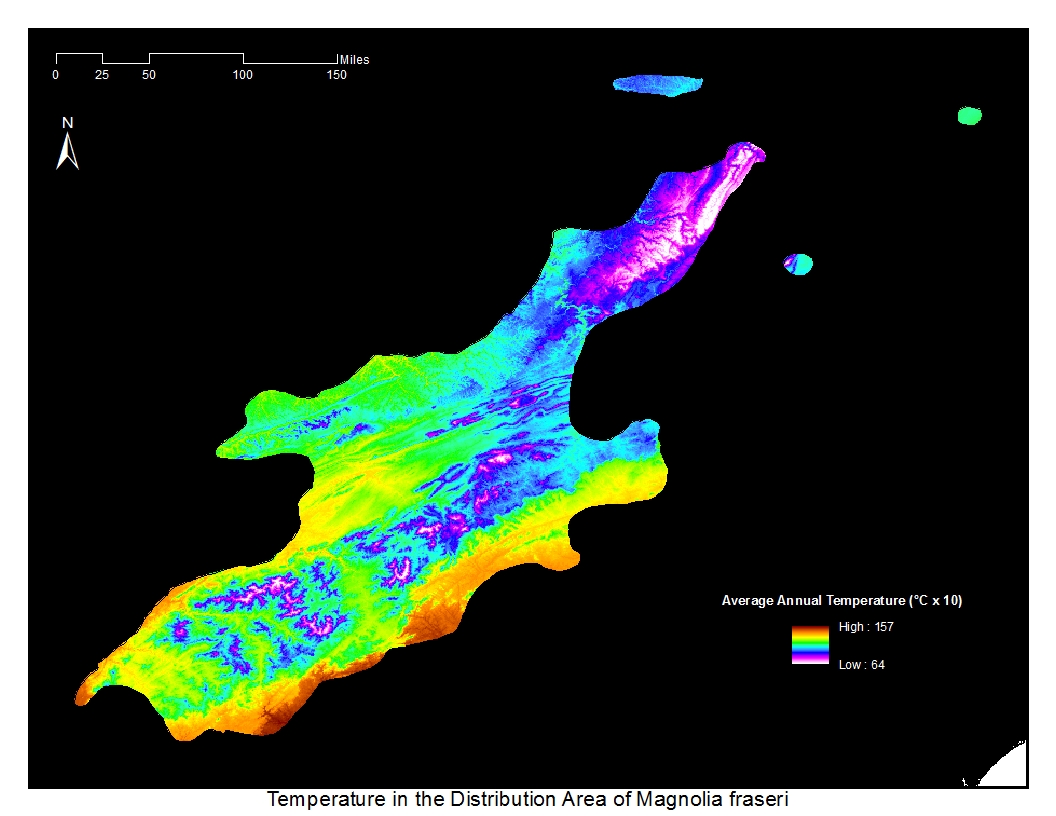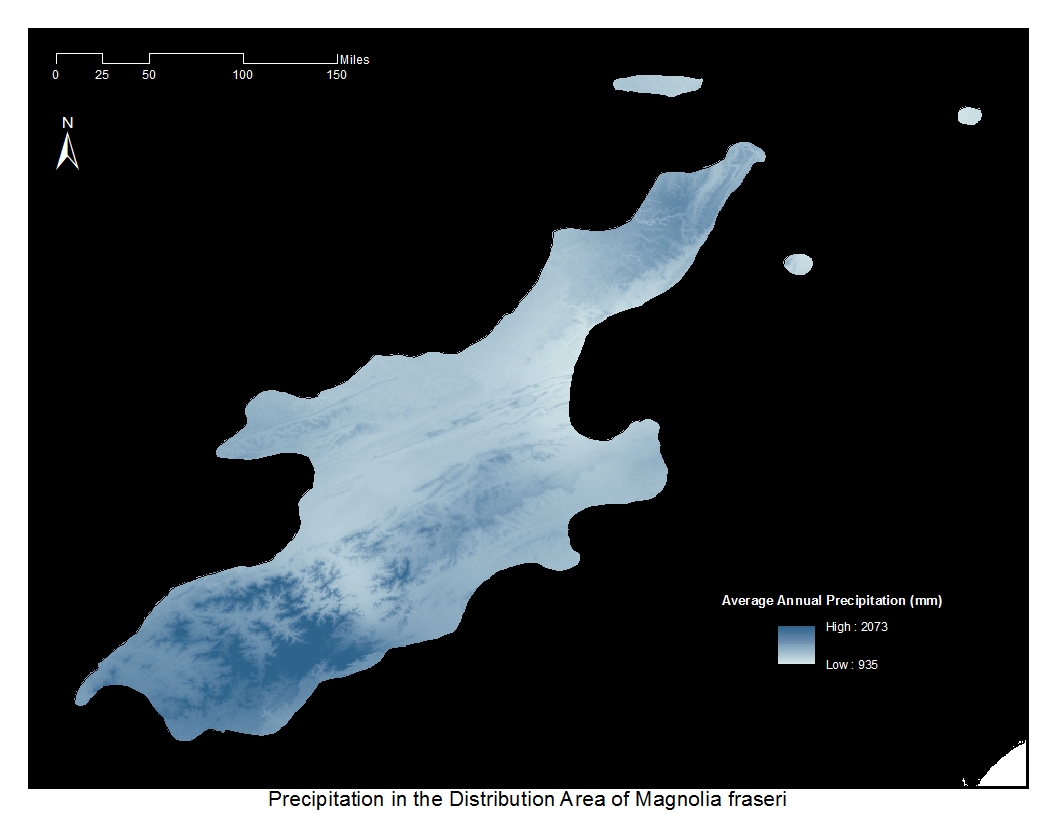Mountain magnolia, Magnolia fraseri, is also known as Fraser magnolia, earleaf cucumbertree, umbrellatree, or mountain-oread.
The range is very limited, and this magnolia is natively primarily found in the hardwood forests at the base of the Appalachians, with some additional range.
For such a limited range, precipitation has a sizeable amount of variation. Temperature is a little less variable, especially in the summer. In winter months, the temperature varies a little by area. Frost-free days are medial, at 150 to 180 days annually.
Generally, the mountain magnolia is found in soils with moderate moisture. Sites are typically protected as well, and mountain magnolias do best in soils with high mineral content.
The white flowers are 8 to 12 inches wide, with six to nine petals. They usually open from May to June. A good crop of seeds occurs every four to five years, but stump sprouts survive more easily than seedlings, typically.
Mountain magnolia has very thin bark, making it susceptible to fire damage, which leads to wood rot. Cankers, rot, insects, and prolonged flooding can damage or kill the tree.
Typically, larger individuals with defects make dense for wildlife, and sprouts and foliage are browsed.




